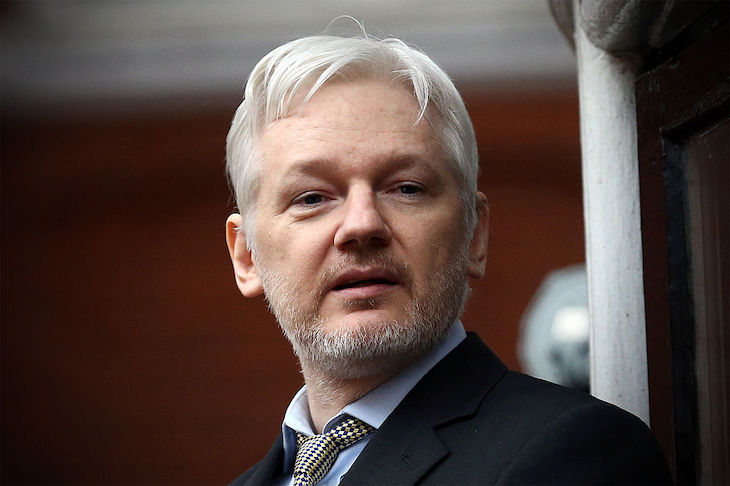Julian Assange was a changed man when he walked free from Belmarsh prison in south London this week. The Wikileaks founder’s appearance was radically different from when he was arrested outside the Ecuadorian embassy in London in 2019. It was a striking example of what prison can do to a person.
The images of Assange – whose relief at being free was palpable – made me revisit my own time behind bars and what it did to me. Even the looming prospect of being locked up – the eighteen months from charge to sentencing had been very hard – changed me beyond recognition. I went back to my own photos from the day I was finally sentenced in February 2020. I struggle to remember that scared, fat, clean-shaven man.

I’d been in limbo for a year-and-a-half: a feeling that Assange will no doubt know well. Unable to make plans for the future and torturing myself with imagined prison horrors every day, I drank a lot and exercised little. The predictable happened. By the time I arrived at Wandsworth, I weighed almost 19 stone. Even at 6’1” I was vastly obese.
The images of Assange – whose relief at being free was palpable – made me revisit my own time behind bars
Prisons like Wandsworth – and indeed Belmarsh – serve very little food to prisoners. Despite spending most of my time sitting or lying in my cell, within six months I looked nothing like my ID card photo that was taken when I arrived. On the day in December 2020, when I finally ‘shipped out’ from Wandsworth, the staff in reception laughed at how much I’d changed. When I got to HMP Hollesley Bay in Suffolk in early December 2020, I looked in the mirror and thought for the first time in my adult life you could do with putting some weight on. No wonder. When the nurse weighed me there, I came in at a shade over 12-and-a-half stone. A third of my weight gone in ten months. What else did I leave behind in Wandsworth? Reflections, sadness and regret. I wouldn’t recommend prison to anyone. Our jails are cruel, wasteful and counterproductive, and full of horrors that will never leave me.
But they do give you time. There’s so much time in prison, and especially so during covid, when we often spent 23 to 24 hours a day ‘banged up’ in our cells. I wrote and remembered and thought. I considered the choices I’d made which sent me to jail. I reflected on the life I’d lived, and I promised God, and myself, that I’d use the second half far better than I had the first.
Some academic theorists speak of modern prisons as a panopticon, where everyone is observed at all times. While the architecture of jails like Wandsworth, with radial wings stretching out from a central hub, seeks to achieve that, the reality (as always) is rather different. Even within the prison most inmates are little more than a number. Unless you behave in a particularly egregious or noisy manner you will go unnoticed. Cut off from most contact with the world outside, unable to roam or breathe free air, to me prison felt more like an oubliette or the underworld.
Near the end of my prison sentence I met an old soldier who was also close to release. As we walked around the open prison our conversation became reflective, and I asked him what his sentence had been like. It’s like being deployed, like going to war…and as hard to explain to someone who hasn’t been there. His insight rings truer to me with every passing year.
Prison changes us; it must. Stripped of pride and stripped of everything which gave me status and stripped of distractions, I experienced a kind of death. Some experiences are not lived through. We are changed forever by them, and the person who exists afterwards is not the same. Julian Assange is now free, but his time behind bars will never leave him.






Comments